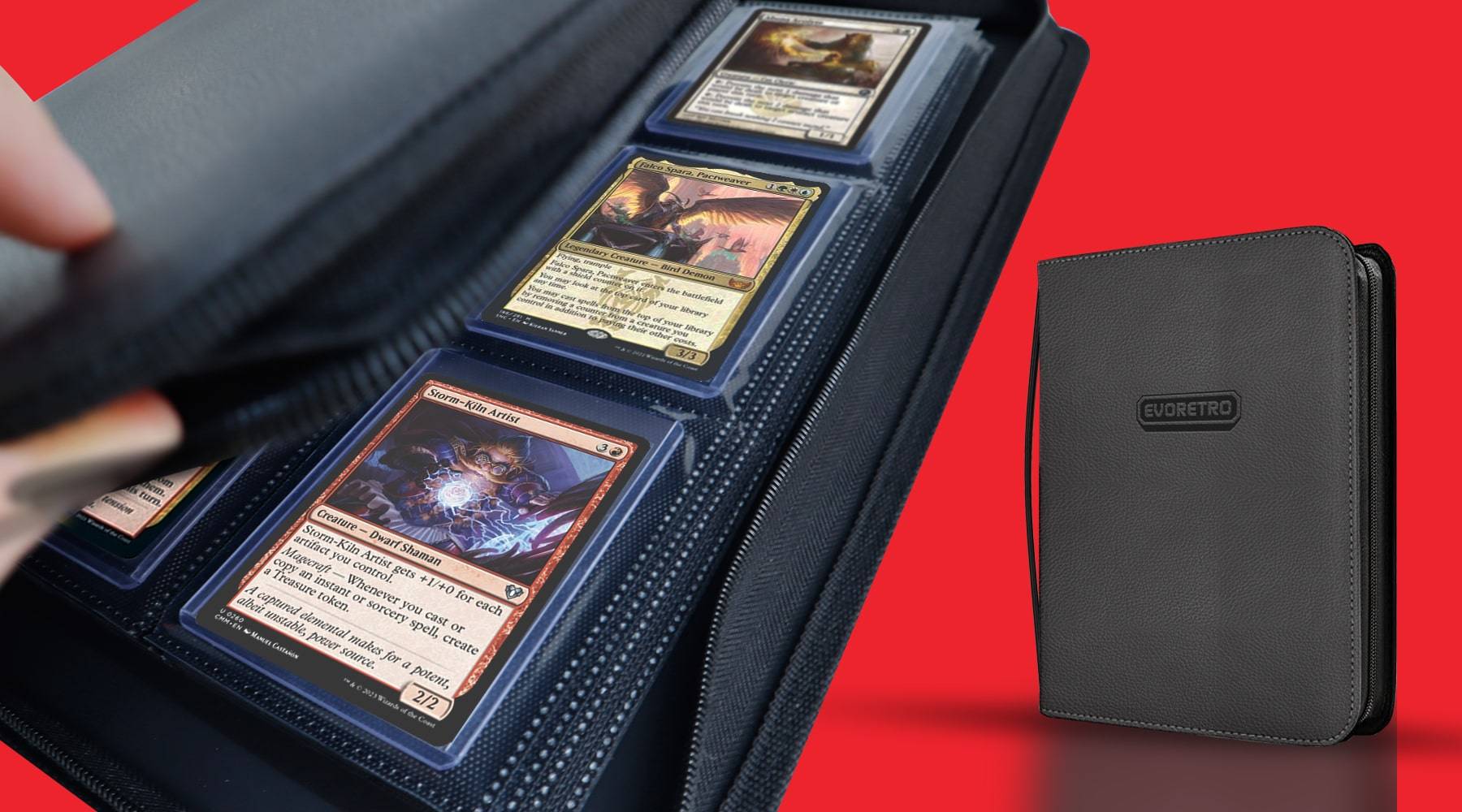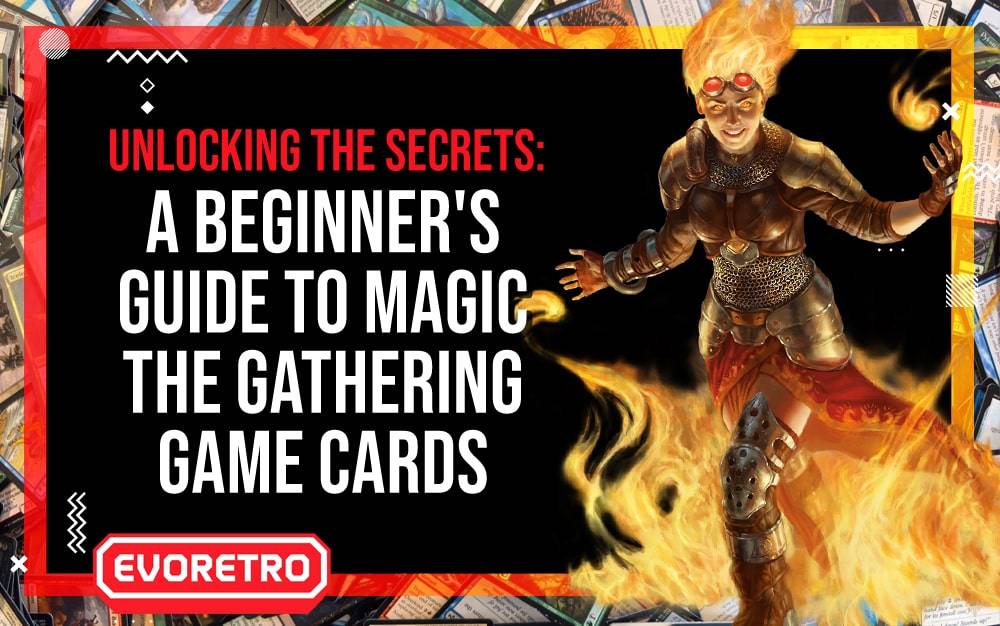
Unlocking the Secrets: A Beginner's Guide to Magic the Gathering Game Cards
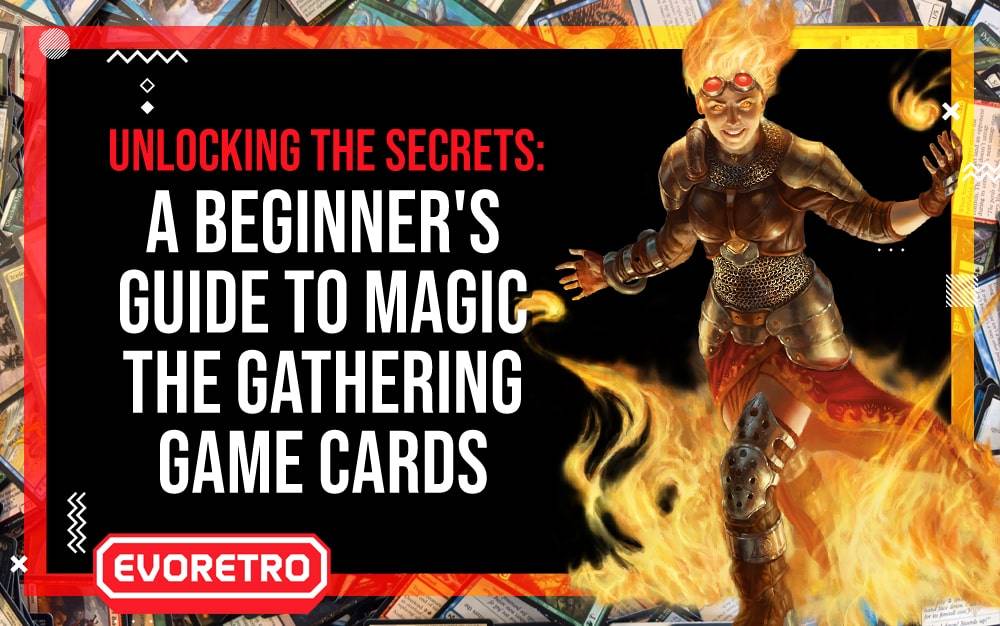
Are you ready to enter the world of Magic: The Gathering? This trading card game has been captivating players for over 25 years and shows no signs of slowing down. But where to begin? With so many cards and rules to learn, it can be overwhelming for beginners.
Fear not, this beginner's guide will unlock the secrets and provide a comprehensive introduction to Magic: The Gathering cards. From the different card types to understanding the deckbuilding process, we've got you covered.
For those new to the game, understanding the brand voice is also key. Magic: The Gathering is known for its intricate world-building and storytelling, so expect a tone that is rich in detail and imagination.
Whether you want to become a competitive player or just enjoy casual games with friends, our guide will give you the foundation you need to start your Magic: The Gathering journey. So, shuffle up and let's dive into the magical world of MTG!
Understanding the different types of MTG game cards
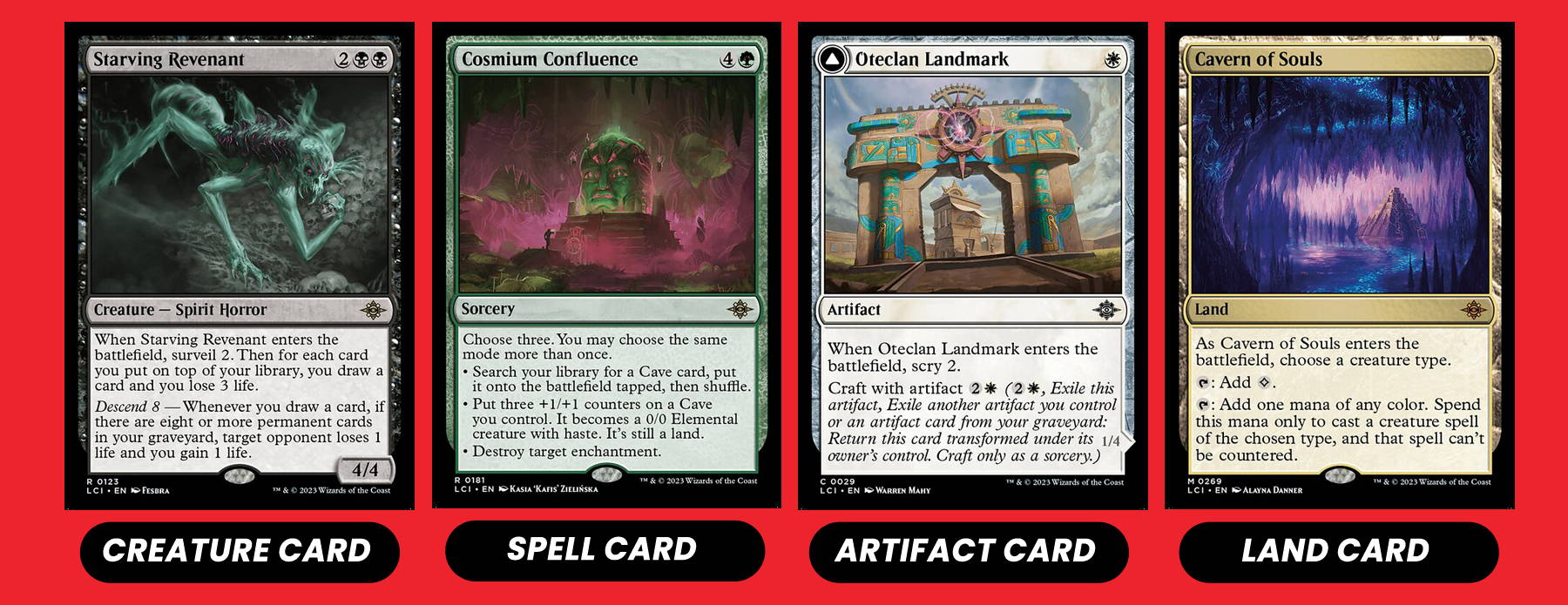
Magic: The Gathering is a game filled with a diverse range of cards, each with its own unique abilities and effects. To truly understand the game, it's important to familiarize yourself with the different types of cards you'll encounter.
1. Creature Cards: Creature cards are the backbone of any Magic: The Gathering deck. These cards represent a wide array of creatures, from mythical beasts to powerful warriors. Each creature has its own power and toughness, which determines its combat abilities. Some creatures also have special abilities that can be activated to gain an advantage in the game.
2. Spell Cards: Spell cards are the bread and butter of Magic: The Gathering. These cards allow players to cast spells, summon creatures, and manipulate the game in various ways. There are different types of spell cards, such as instant spells that can be cast at any time, sorcery spells that have a one-time effect, and enchantments that provide ongoing benefits.
3. Artifact Cards: Artifact cards represent magical items, equipment, or artifacts that players can use to gain an advantage. These cards often have unique abilities that can help control the game or boost the power of creatures.
4. Land Cards: Land cards are the foundation of every Magic: The Gathering deck. These cards represent the mana, or magical energy, that players use to cast spells and activate abilities. Each land card produces a specific color of mana, which determines the types of spells and abilities you can cast.
Understanding the different types of cards is crucial for building a cohesive and powerful deck. By combining creatures, spells, artifacts, and lands strategically, you can create a winning strategy that suits your playstyle.
The importance of card rarity and how it affects gameplay
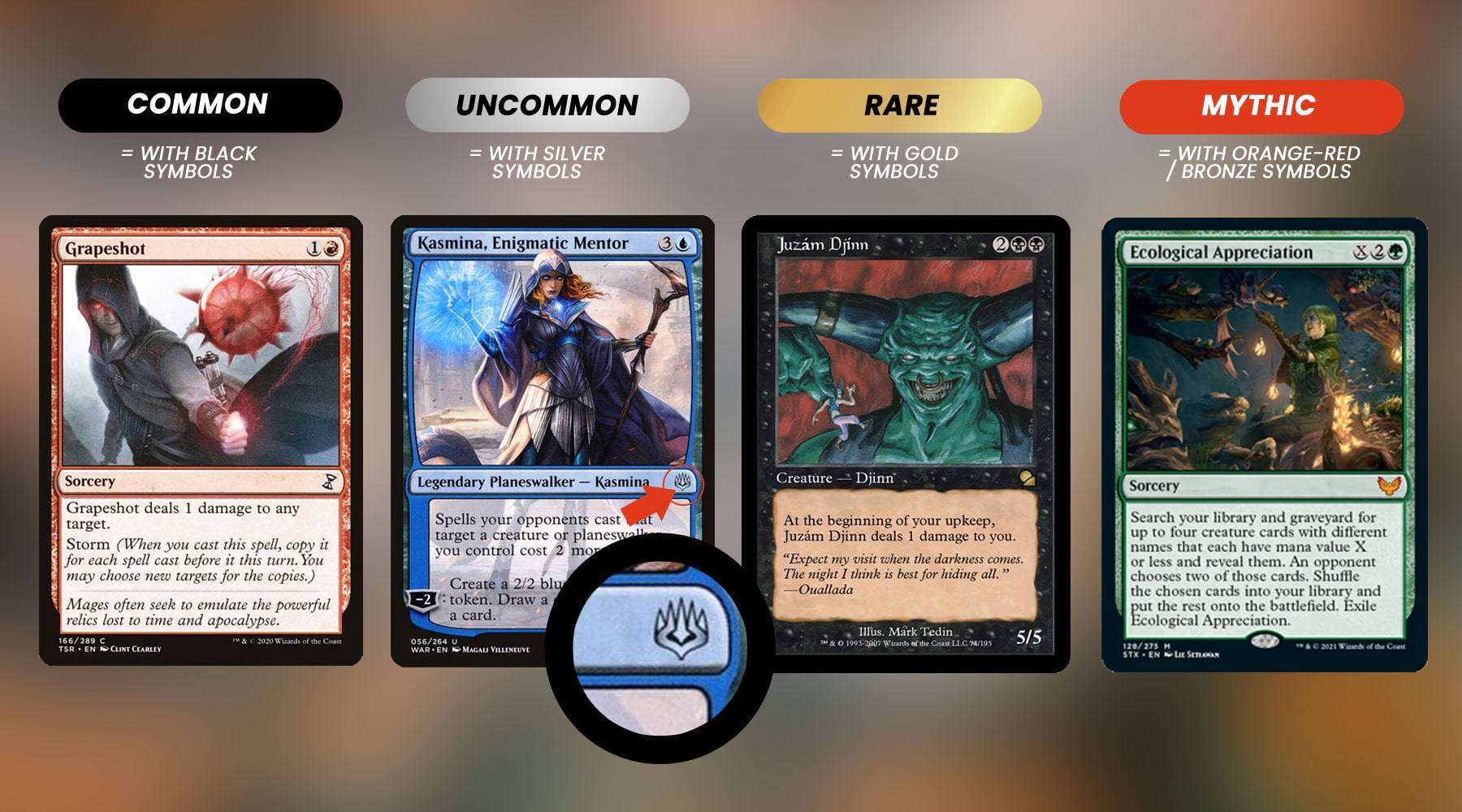
In Magic: The Gathering, cards are categorized into different rarities: common, uncommon, rare, and mythic rare. Each rarity level indicates the likelihood of finding a specific card in booster packs and its relative power level.
1. Common Cards: Common cards are the most abundant and least valuable cards in the game. They are often the building blocks of a deck and can be found in large quantities. While individual common cards may not have flashy abilities, they play a crucial role in establishing a solid foundation for your deck.
2. Uncommon Cards: Uncommon cards are slightly rarer than common cards and tend to have more powerful abilities. These cards can provide unique synergies and strategies that can give you an edge in the game.
3. Rare Cards: Rare cards are harder to find than common and uncommon cards. They often have powerful abilities that can greatly impact the game. These cards are highly sought after by collectors and can be valuable in trading or selling.
4. Mythic Rare Cards: Mythic rare cards are the rarest and most powerful cards in the game. These cards are often game-changers and can have a significant impact on the outcome of a match. Mythic rare cards are highly coveted and can be considered the crown jewels of any collection.
Understanding card rarity is essential for both deckbuilding and trading. By knowing the rarity of your cards, you can assess their value and strategically choose which cards to include in your deck.
Building a strong MTG deck: Essential cards and strategies
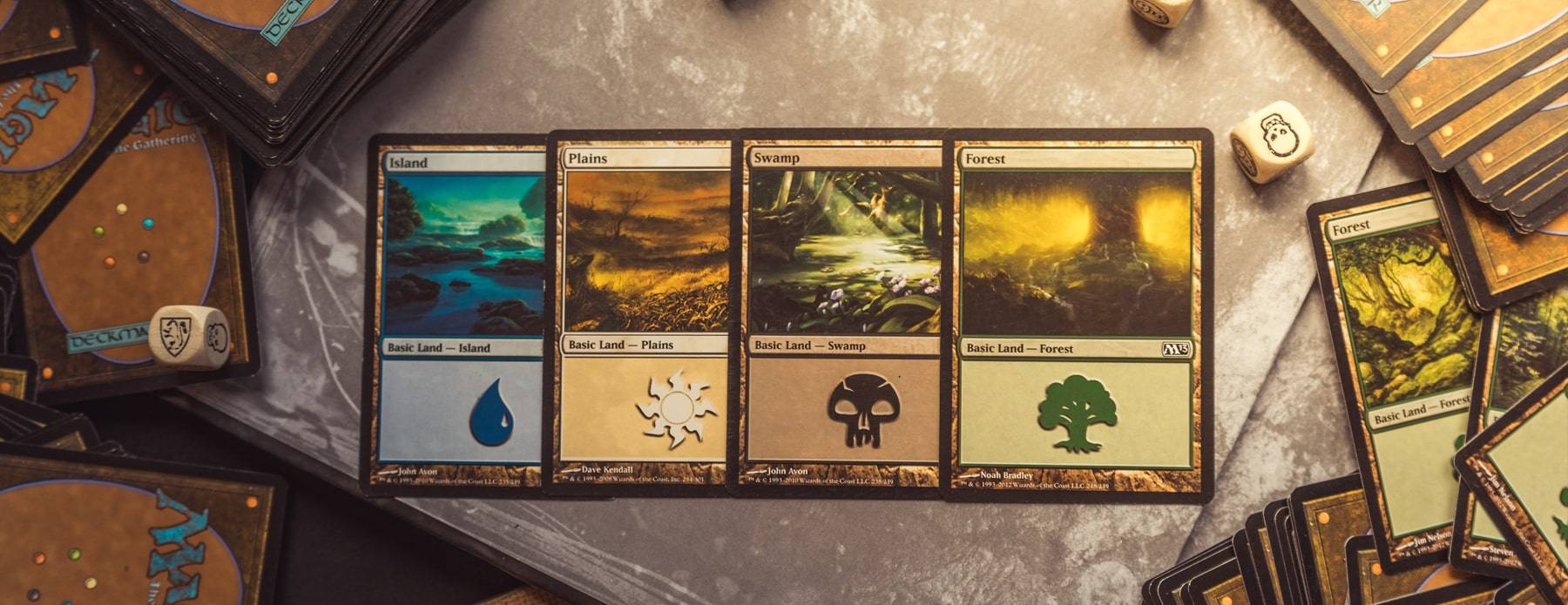
Building a strong deck is the key to success in Magic: The Gathering. Whether you're a beginner or an experienced player, understanding the fundamentals of deckbuilding is crucial for consistent wins.
1. Choose a Theme: Before diving into the deckbuilding process, it's important to decide on a theme or strategy for your deck. This could be based on a specific card type, creature subtype, or playstyle. Having a clear theme will help guide your card selection and ensure that your deck has a cohesive strategy.
2. Balance Card Types: A well-balanced deck typically includes a mix of creatures, spells, artifacts, and lands. Consider the purpose of each card and how it contributes to your overall strategy. Make sure to include a variety of card types to ensure flexibility and adaptability during gameplay.
3. Consider Mana Curve: The mana curve refers to the distribution of cards based on their mana cost. Ideally, your deck should have a smooth mana curve, meaning you have a good mix of low-cost and high-cost cards. This ensures that you have options to play at every stage of the game and prevents getting stuck with unplayable cards in your hand.
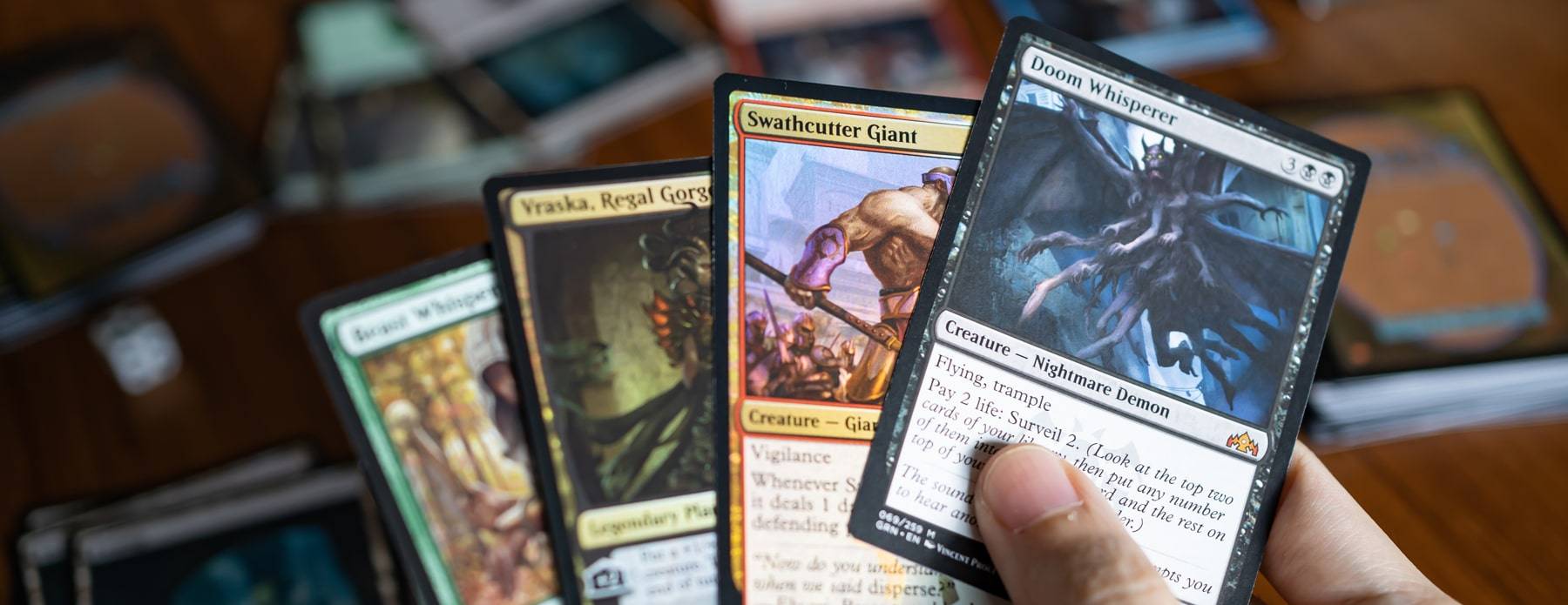
4. Synergize Your Cards: Look for cards that synergize well with each other. Synergy refers to the interaction between cards that enhances their overall effectiveness. For example, if you have a deck focused on creatures with flying, including cards that boost their power or provide additional benefits to flying creatures can amplify your strategy.
5. Consider Card Interactions: Magic: The Gathering is a game of complex interactions. Pay attention to how your cards interact with each other and with your opponent's cards. Look for cards that disrupt your opponent's strategy or provide protection for your own cards. Understanding card interactions will give you a strategic edge in the game.
Toploader Binder: To protect and organize your valuable cards, consider investing in a toploader binder. Toploaders are plastic sleeves that provide extra protection against bending and damage. Binders with toploading pockets make it easy to store and display your favorite cards while keeping them in pristine condition. Additionally, using toploaders in combination with sleeves offers an extra layer of protection, safeguarding your cards from scratches and wear during gameplay.
By following these deckbuilding principles, you'll be on your way to constructing a formidable deck that can compete with the best players.
Exploring different MTG formats and their card restrictions
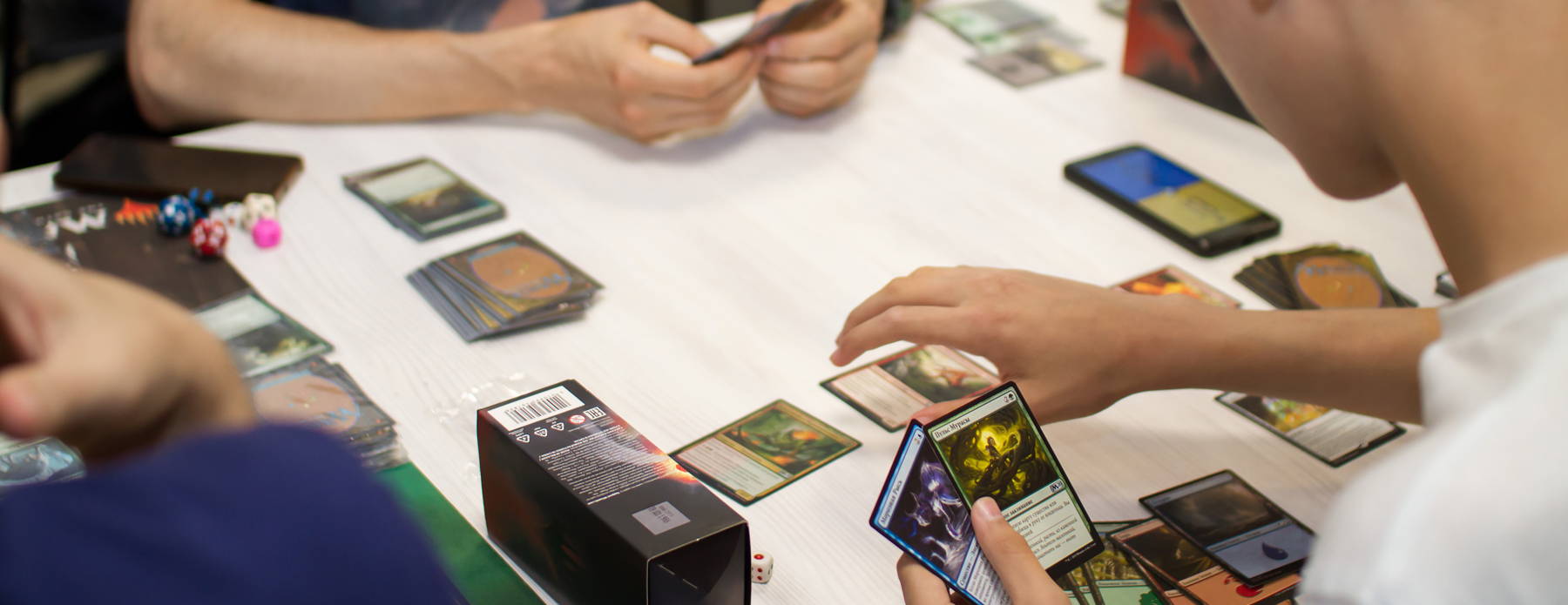
Magic: The Gathering offers a variety of formats to suit different playstyles and preferences. Each format has its own set of rules and card restrictions, which can greatly impact the deckbuilding process. Here are a few popular formats you might encounter:
1. Standard: Standard is the most common and accessible format in Magic: The Gathering. It consists of the most recent sets of cards, typically spanning the last two years. Standard rotates regularly, keeping the meta fresh and ensuring a diverse range of decks.
2. Modern: Modern is a non-rotating format that includes cards from a larger pool of sets, typically spanning several years. This format allows for a wider range of deckbuilding options and appeals to players who prefer a more long-term investment in their cards.
3. Commander: Commander, also known as Elder Dragon Highlander (EDH), is a unique multiplayer format that emphasizes social interaction and political gameplay. Each deck consists of 100 cards, including a legendary creature as the commander. Commander has its own set of rules and restrictions, making it a popular choice for casual play.
4. Legacy and Vintage: Legacy and Vintage are formats that include cards from the entire history of Magic: The Gathering. These formats offer a vast card pool and allow for powerful and unique strategies. However, they can also be more expensive to enter due to the rarity and value of older cards.
It's important to understand the rules and restrictions of each format before building your deck. This ensures that your deck is legal and can be played in the format of your choice.
How to collect and trade MTG game cards
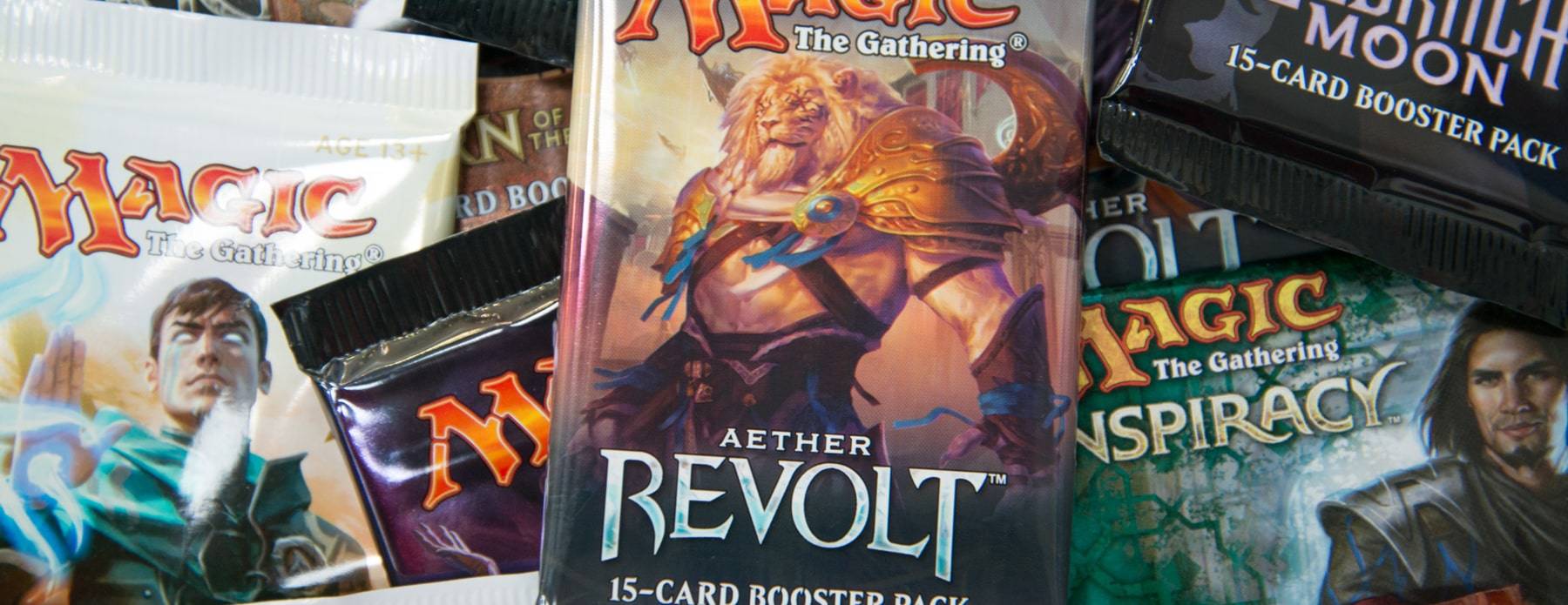
Collecting and trading Magic: The Gathering cards is an integral part of the game's culture. Not only does it allow you to expand your collection, but it also provides opportunities to acquire cards that are essential for your deckbuilding strategies. Here are some tips on how to collect and trade MTG game cards effectively:
1. Buy Booster Packs: Booster packs are the most common way to acquire new cards. These packs contain a random assortment of cards, including commons, uncommons, rares, and occasionally mythic rares. Buying booster packs can be an exciting way to discover new cards and build your collection.
2. Participate in Drafts: Drafting is a popular format where players open booster packs and select cards one at a time to build their decks. It's a great way to acquire new cards while honing your deckbuilding and gameplay skills. Drafting can be done at local game stores or online platforms.
3. Attend Events and Tournaments: Events and tournaments provide opportunities to trade cards with other players. Many players attend these events specifically to trade and complete their collections. Take advantage of these gatherings to find the cards you need and connect with fellow MTG enthusiasts.
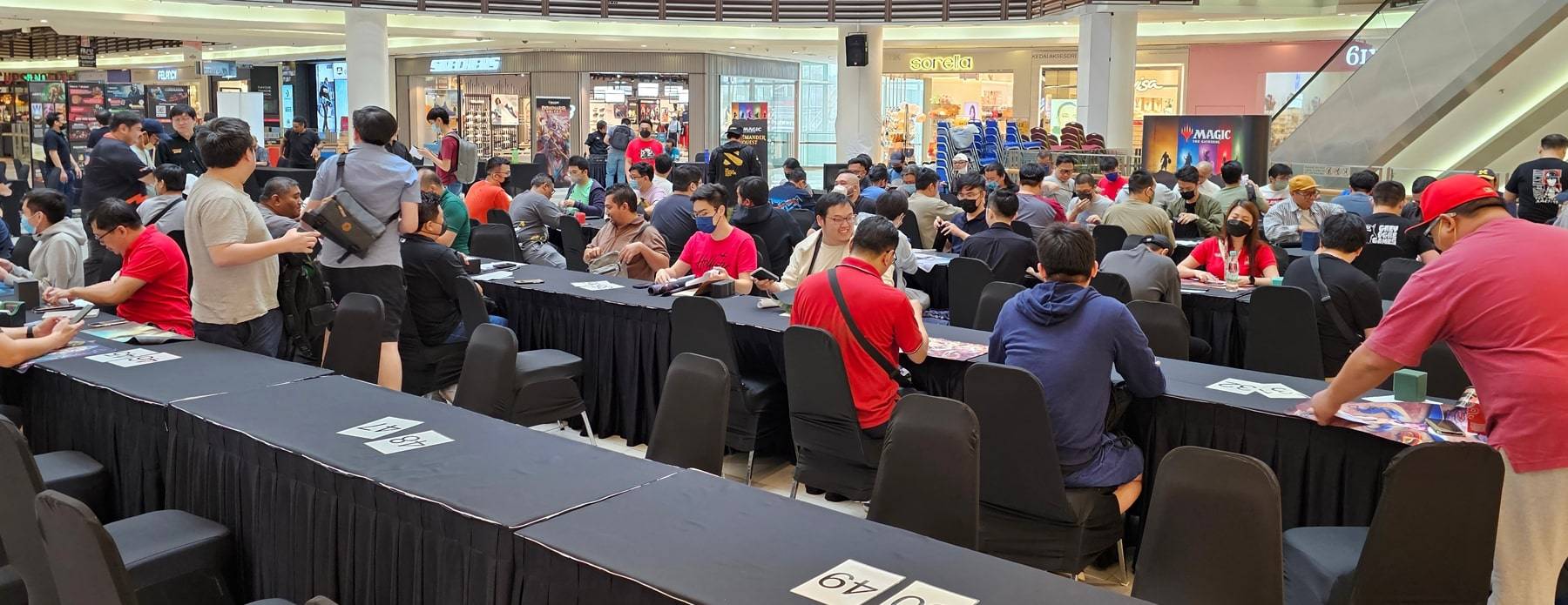
3. Attend Events and Tournaments: Events and tournaments provide opportunities to trade cards with other players. Many players attend these events specifically to trade and complete their collections. Take advantage of these gatherings to find the cards you need and connect with fellow MTG enthusiasts.
4. Use Online Trading Platforms: Online trading platforms, such as Magic Online and various trading groups, offer a convenient way to connect with other players and trade cards. These platforms allow you to search for specific cards, negotiate trades, and expand your collection without leaving the comfort of your home.
When trading cards, it's important to know the value of the cards you possess and the cards you desire. Familiarize yourself with the current market prices and be prepared to negotiate fair trades.
Tips for improving your gameplay and winning more matches
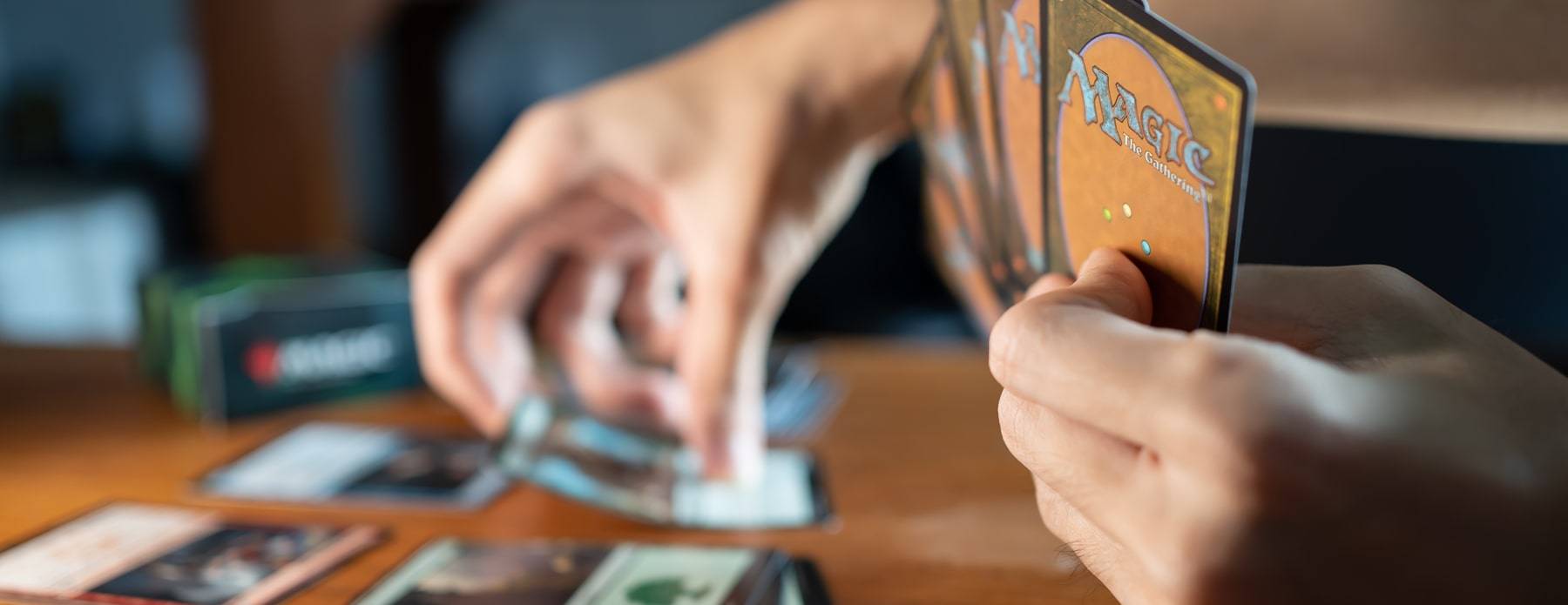
Becoming a skilled Magic: The Gathering player takes practice, strategy, and a deep understanding of the game. Here are some tips to help you improve your gameplay and increase your chances of winning more matches:
1. Know Your Deck: Familiarize yourself with the cards in your deck and understand how they interact with each other. This will help you make better decisions during gameplay and utilize your cards to their full potential.
2. Study the Meta: Stay updated on the current metagame, which refers to the most popular and successful decks in the competitive scene. Understanding the meta will help you identify common strategies and prepare your deck accordingly.
3. Practice Regularly: Practice is essential for improving your gameplay. Find opportunities to play against other players, whether it's at local game stores, online platforms, or with friends. The more you practice, the better you'll become at making strategic decisions and anticipating your opponents' moves.
4. Analyze Your Games: After each game, take the time to analyze your decisions and gameplay. Identify areas where you could have made better choices or missed opportunities. Learning from your mistakes is crucial for growth as a player.
5. Seek Feedback: Don't be afraid to seek feedback from more experienced players. They can provide valuable insights and suggestions for improving your deck or gameplay. Joining online communities or local playgroups is a great way to connect with seasoned players and learn from their expertise.
Remember, winning isn't everything. Enjoy the journey of learning and improving as a player. With dedication and practice, you'll become a formidable opponent in no time.
Resources for learning and staying updated on MTG game cards
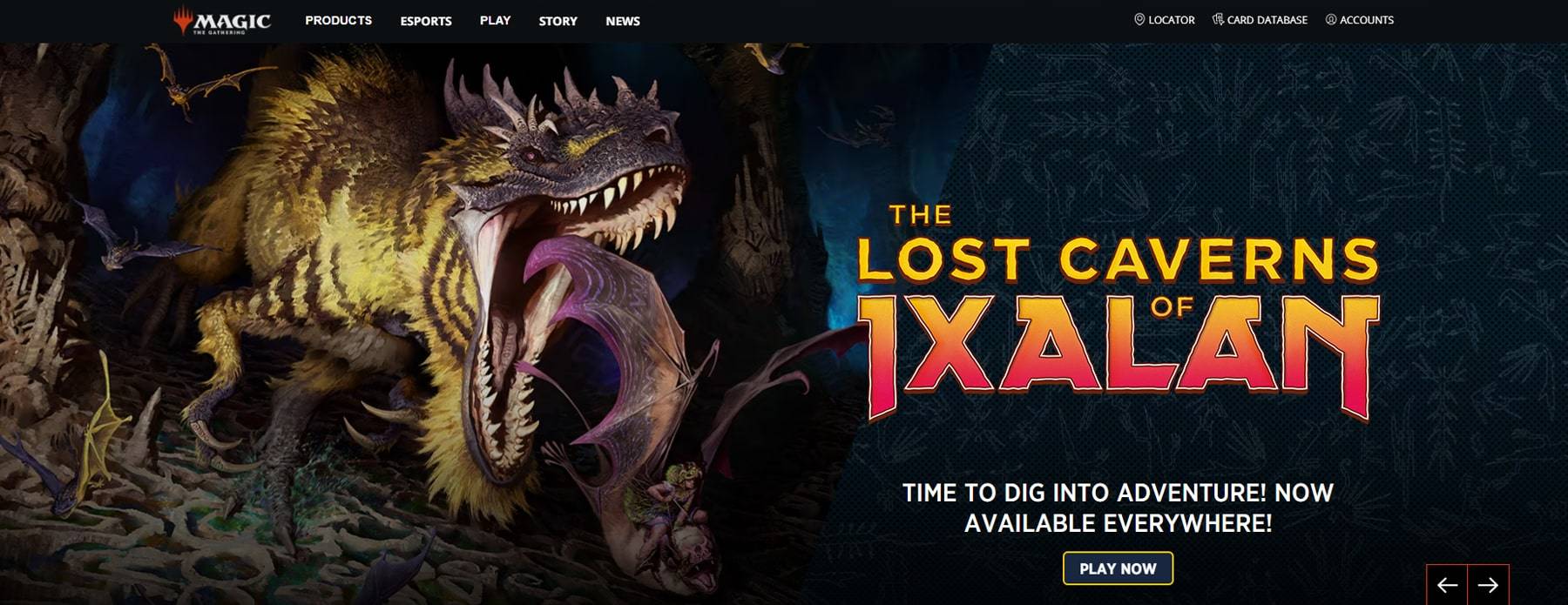
Magic: The Gathering is a constantly evolving game, with new cards and sets being released regularly. Staying updated on the latest card releases, rules changes, and strategies is essential for staying competitive. Here are some resources to help you learn and stay informed:
1. Official Website: The official Magic: The Gathering website (https://magic.wizards.com) is the go-to resource for all things MTG. It provides comprehensive rules, card databases, articles, and news updates.
2. Online Communities: Joining online communities, such as forums, subreddits, and social media groups, is a great way to connect with other players and stay updated on the latest news and strategies. These communities often have dedicated sections for deckbuilding advice, rules discussions, and card analysis.
3. YouTube Channels: Many content creators on YouTube specialize in Magic: The Gathering and offer a wealth of information and entertainment. From deck techs to gameplay analysis, these channels can help you improve your skills and keep up with the latest trends in the game.
4. Local Game Stores: Local game stores are not only great places to play the game, but they also often host events, tournaments, and provide resources for players. Check out your nearest game store to see if they offer tutorials, beginner-friendly events, or have knowledgeable staff who can assist you.
5. Podcasts and Blogs: There are numerous podcasts and blogs dedicated to Magic: The Gathering, where experts share their insights, analysis, and advice. These platforms are a great way to learn from experienced players and stay engaged with the MTG community.
By utilizing these resources, you can stay informed, improve your gameplay, and fully immerse yourself in the world of Magic: The Gathering.
Common mistakes to avoid when playing MTG
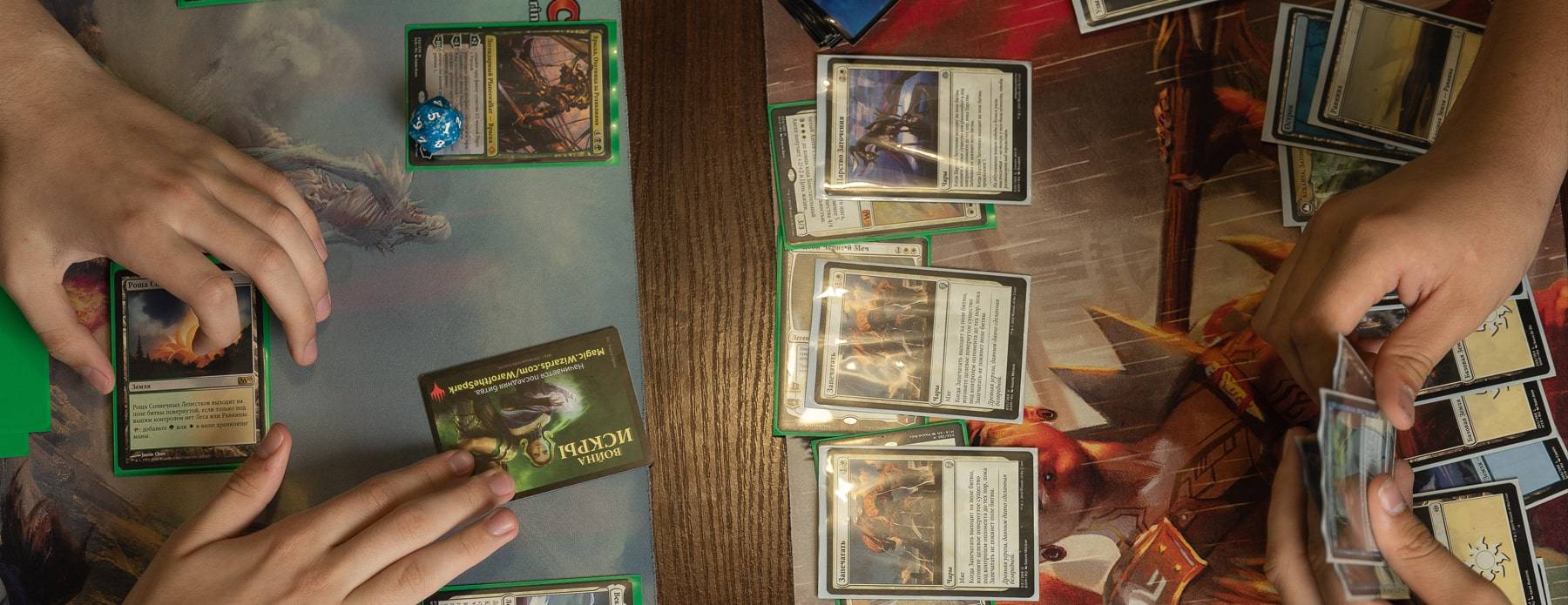
Even seasoned players make mistakes from time to time. Here are some common mistakes to avoid when playing Magic: The Gathering:
1. Misinterpreting Card Effects: Read the card text carefully and understand its effect before playing it. Misinterpreting a card's effect can lead to costly mistakes and missed opportunities.
2. Forgetting Triggered Abilities: Some cards have triggered abilities that activate under specific conditions. It's important to remember these abilities and take advantage of them during gameplay.
3. Poor Mana Management: Mana management is crucial in MTG. Make sure to plan your turns carefully and consider how much mana you'll need for upcoming plays. Wasting mana or not having enough can greatly hinder your strategy.
4. Neglecting to Attack: In Magic: The Gathering, being proactive and attacking is often the key to victory. Don't be overly defensive or hesitant to attack when the opportunity arises.
5. Overextending on the Board: While having a strong board presence is important, overextending by playing too many cards can leave you vulnerable to board wipes and other removal spells. Be mindful of the risks and rewards of playing multiple cards at once.
By being aware of these common mistakes, you can minimize errors and improve your overall gameplay.
Conclusion: Embracing the magic of MTG and its game cards
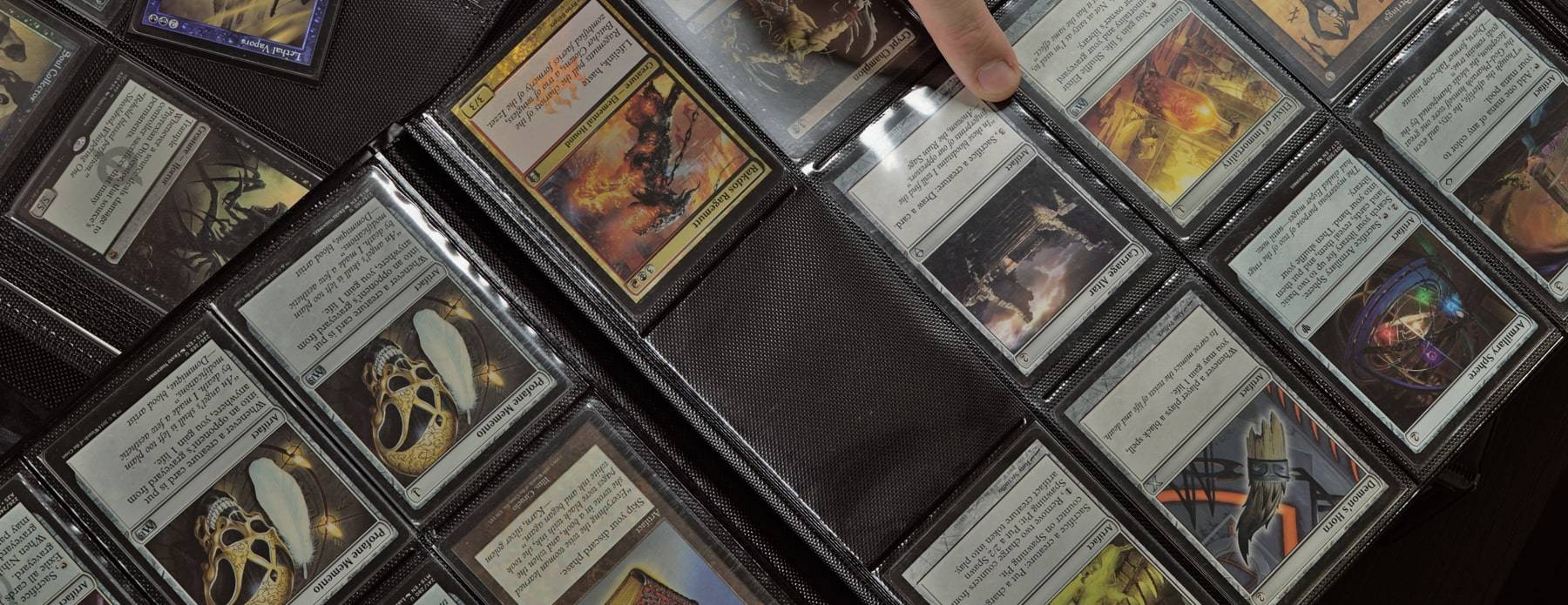
Congratulations! You've reached the end of our beginner's guide to Magic: The Gathering game cards. We hope this comprehensive introduction has provided you with the knowledge and confidence to embark on your MTG journey.
Remember, Magic: The Gathering is a game that offers infinite possibilities and endless enjoyment. Whether you're a casual player or aspiring.
And as you venture into the magical realms of MTG, don't forget to safeguard your valuable card collection. Consider investing in a toploader binder, enhanced with toploaders and sleeves. This protective combination ensures that your cherished cards are shielded from bending, scratches, and wear during both gameplay and storage. With your cards well-preserved, you're not only preserving their physical condition but also maintaining the magic within each one. So, shuffle up, duel on, and may your MTG journey be filled with epic plays and memorable moments!
- Choosing a selection results in a full page refresh.
!

